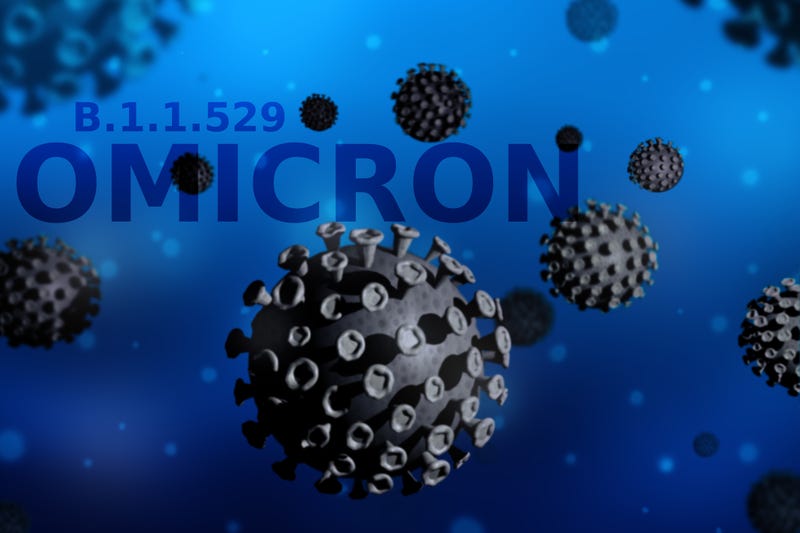
CHICAGO (WBBM NEWSRADIO) -- It was expected to get here eventually, and now it has. The COVID-19 Omicron variant has made its way to Chicago, Illinois.
The Illinois Department of Public Health and the Chicago Department of Public Health announced Tuesday a Chicagoan has contracted the Omicron COVID variant, the first such case detected in Illinois.
The state and city public health departments said the person who tested positive for the Omicron variant contracted it from someone they knew, who was visiting Chicago from another state. The Chicagoan had been fully vaccinated, including a booster shot, and has not become sick enough to require hospitalization. They departments went on to say that the person’s condition is improving and that he or she has been self-isolating since first coming down with symptoms.
“While unsurprising, this news should remind Chicagoans of the ongoing threat from COVID-19, especially as families prepare to come together over the holidays,” said CDPH Commissioner Allison Arwady, M.D., in a statement “We know how to slow the spread of this virus: get vaccinated, get boosted, get tested if you have symptoms or have been in contact with someone with COVID-19, and stay away from others if you test positive. Wear a mask indoors, avoid poorly ventilated spaces, practice social distancing, and wash your hands.”
The first case of Omicron in the United States was reported on Dec. 1, 2021, and both travel-associated and non-travel-associated cases have subsequently been reported from multiple U.S. states, according to IDPH. Public health officials have been anticipating detection of this variant and expect further cases to be reported in the coming days and weeks. While there are concerns about how quickly this variant has emerged and spread in South Africa, much remains to be learned about how it behaves, and IDPH and CDPH will continue working closely with CDC to closely monitor this case and others.
“Public health experts and scientists worldwide continue to study the newest variant, Omicron, to determine if it spreads more easily, causes more severe illness, and how effective the current vaccines are against it,” said IDPH Director Dr. Ngozi Ezike, in a statement. “While we don’t have all the answers right now, we know the general prevention strategies we’ve been recommending – vaccination, boosters, masking, testing, physical distancing – are our best protection against the virus and its variants. As long as the virus continues to circulate, it has the potential to mutate into new variants. Vaccination can help stop circulation, but we need more people to get vaccinated.”
Dr. Arwady spoke Tuesday and said, "we do expect that vaccinations will continue to have some protection, especially against the severe outcomes. We’re still learning how much, and yes, we are still learning; lots of you are asking, 'Are we going to need an Omicron booster?' We might. We’ll know in another two weeks...
"I don’t have the answer yet whether an Omicron booster will be needed, but what I do know is that getting the vaccines we have now and getting boosted has helped protect against the spread of Omicron in a number of case examples."
Dr. Arwady and other officials said the best protection against COVID-19 remains: vaccinations, boosters, masking, and physical distancing.
She added that the City of Chicago is now considered “very high risk" for transmission when it comes to any new COVID cases per day; and it is possible the city might begin requiring more proof-of-vaccination for activities and in public spaces.
“It’s certainly something that, as this increase is continuing and with a new variant, we may do more of,” she said. “This is, again, the winter surge, as we move inside and see more spread, even before Omicron. This is…regional with winter here and with a lot of people still not vaccinated.”



